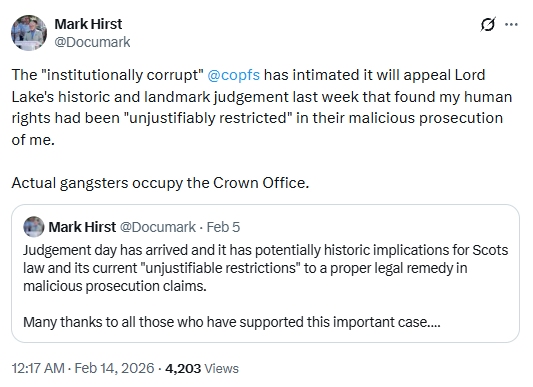These Questions need answers.
Have too many of us (particularly our politicians) accepted the ruling of the Supreme Court as the last word on the subject of a right to “self-determination”? This might surprise you – it is a sentence from the Supreme Court ruling “First, the principle of self-determination is simply not in play here.” What follows illustratesContinue reading "These Questions need answers."

Have too many of us (particularly our politicians) accepted the ruling of the Supreme Court as the last word on the subject of a right to “self-determination”?
This might surprise you – it is a sentence from the Supreme Court ruling “First, the principle of self-determination is simply not in play here.”
What follows illustrates (I hope) why the Declaration of a Sovereign Scot initiative was started and why accepting a ruling based on UK domestic law may not be the final arbiter on whether the people of Scotland can freely chose the destiny of their country!
This is an extract from one of the letters issued to the Secretary General of the United Nations – it was issued on the 6th of April 2021 (Yes – Think Arbroath.)
“In the most simple of terms: there are those in Scotland who wish to see Scotland regain its independence as a Sovereign country, there are also those who wish to see it remain part of the United Kingdom of Great Britain and Northern Ireland (hereinafter “UK”). It creates matters of importance and considerable debate in Scotland.”
Question #1: Is Scotland a country?
Question #2: Is the UK a country?
Question #3: Might the answers to those 2 questions prove important?
Article 21 of the Universal Declaration on Human Rights ensures that “people” have a say in the governance of the “country” they live in.
Article 21 – Full text:
1. Everyone has the right to take part in the government of his country, directly or through freely chosen representatives.
2. Everyone has the right of equal access to public service in his country.
3. The will of the people shall be the basis of the authority of government; this will shall be expressed in periodic and genuine elections which shall be by universal and equal suffrage and shall be held by secret vote or by equivalent free voting procedures.
This is a further extract from that same letter – 6th April 2021:
“There is widespread evidence, both past, current, and to be anticipated, that the current UK Government will resist (at best) and strongly oppose and reject (at worst) any attempt to resolve the question of whether the Sovereign people of Scotland can use normal democratic means of addressing the issue of Scotland regaining its independence, whether at elections or by way of referenda. It is important to note that potential denial of democratic means of resolving the issue affects both sides of the debate.”
When much later in November 2022, the Supreme Court of the UK issued a ruling, it was that “freely chosen representatives” elected by the Scottish people in the “country” in which they lived could NOT use a referendum to resolve the issue:
Question #4: Was that ruling, indeed is it, compatible with Article 21?
Who will have the last word?
MIKE FENWICK.
What's Your Reaction?









































